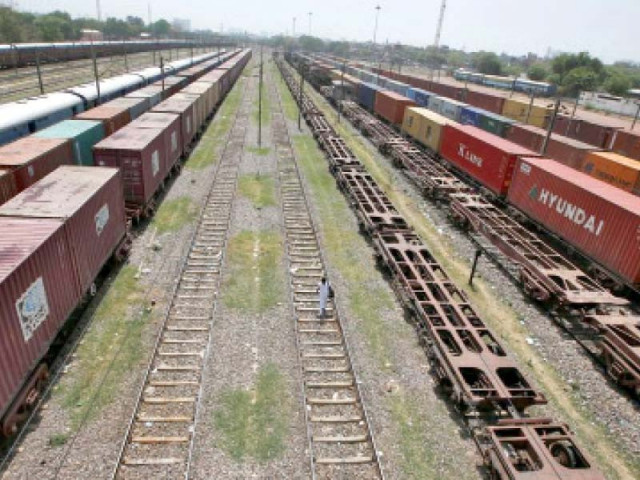KCR clears ‘last hurdle’
Sindh govt, Chinese firm reach agreement to initiate the project

Sindh's Caretaker Chief Minister Justice (retd) Maqbool Baqar and Vice President of China Railway Construction Corporation Li Samaa reached an agreement during their meeting at the CRCC International Headquarters to remove the only two remaining hurdles to the long-awaited Karachi Circular Railway (KCR) project.
The meeting took place on the sidelines of the Third Belt and Road Forum for International Cooperation starting in Beijing from tomorrow.
The CM explained that during a review meeting of CPEC projects on February 9, it was decided that the China Railway Authority needed a fresh feasibility study based on Chinese standards to determine the funding and project cost for the KCR project. The Sindh government's Transport Department, in collaboration with the CRCC, has completed the KCR feasibility study, which now estimates the project's cost at over $2 billion.
Also read: Resolve KCR land issue, orders CM
The CRCC vice president revealed that a joint survey conducted by the Sindh government, in collaboration with the CRCC, has been submitted to the Chinese authorities. He pointed out that only two issues remain to be resolved before commencing the project.
He urged the Sindh CM to address the issues of Right Of Way (ROW) and the sovereignty guarantee to be issued by the Pakistan government. CM Baqar mentioned that his government and the Ministry of Railways have already discussed the ROW issues and anticipate reaching an agreement shortly. Regarding the sovereign guarantee, it is no longer an issue, he added.
The CRCC vice president welcomed this news as a positive step forward for the project. CM Baqar affirmed that his administration, with the support of the federal government, would engage with the Chinese authorities to expedite the KCR project.
Read more: Sindh to bear KCR’s operational cost
According to the updated feasibility study, which has been submitted to the China Railway Authority through the Planning Commission, the KCR's circular route spans approximately 43 kilometres, connecting Karachi's diverse landscape, including industrial zones, residential neighbourhoods, and bustling commercial districts.
The route weaves through key locations such as City Station, Landhi, Malir, Drigh Road, and Orangi. This well-structured route plays a pivotal role in reducing traffic congestion and combating air pollution by providing a reliable alternative to road transportation. Out of its 24 stations, 11 will be at ground level, and 13 will be elevated. The system is expected to accommodate 650,000 passengers per day.
Published in The Express Tribune, October 18th, 2023.



















COMMENTS
Comments are moderated and generally will be posted if they are on-topic and not abusive.
For more information, please see our Comments FAQ